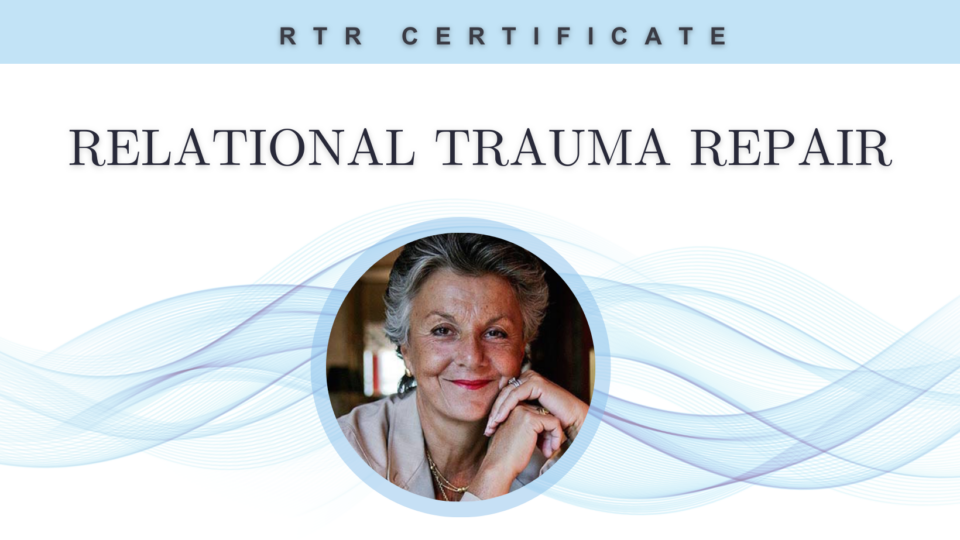
The Attachment Timeline and Role Play Basics
The Attachment Timeline and Role Play Basics
Information
Recorded
-
-
Learning Objectives
Participants will be able to:
-
Explain how to use the Attachment Timeline as a tool to explore and reflect on key developmental moments, attachment dynamics, and unresolved relational wounds, with adaptations for a virtual setting.
-
Describe how to use role plays, including focusing on exploration of past attachment wounds and their impact on present relationships.
-
Identify techniques to adapt role play exercises, such as engaging with an imagined younger self or an attachment figure, for a virtual setting that maintains emotional safety and therapeutic depth.
-
Summarize how to write and share a timeline virtually as a complete exploration in and of itself.
-
Explain the structure and versatility of role plays incorporated into timelines as a way to do inner child work.
Description
Using the Attachment Timeline as a developmental tool, clients can walk along a metaphorical or physical timeline that represents their life, revisiting specific moments or dynamics at different stages of their development. This process can include casting role players to represent themselves or others at various ages. For instance, a client might choose to interact with a younger version of themselves, such as their child or teenage self, while speaking from their current adult perspective. Or they can speak as their teenage self to the parent they had AT THAT POINT IN TIME, thus allowing them to safely explore attachment wounds from the past that may be complicating their interactions with that attachment figure in the present.This dialogue can facilitate deep reflection and healing, providing a way to address unresolved issues, offer comfort, or gain new insights into past experiences.
Role Play Basics
Role plays, often referred to as vignettes, are versatile therapeutic tools that can be used to explore any topic or emotion that emerges during a session. These role plays can take various forms, whether intrapsychic, where the protagonist interacts with themselves at various times from their lives, or interpersonal, where they engage with others. Even pets or an aspect of self, such as their “depression” “anxiety” “hopes” or objects that symbolize something meaningful to them, can be embodied and interacted with.
Structure of Role Plays
Role plays can vary significantly in length and complexity. They can be simple, brief exchanges or longer depending on the material at hand. Even in the simplest scenario, such as speaking to an empty chair, two roles are inherently present: the protagonist and the entity the chair represents.
Target Audience
- Addiction Professional
- Counselor
- Marriage & Family Therapist
- Social Worker
Presenters
Tian Dayton, Ph.D., is a Senior Fellow at The Meadows and a nationally renowned speaker, expert, and consultant in trauma, addiction, and psychodrama. Dr. Dayton is the director of The New York Psychodrama Training Institute and author of 15 books, including the soon-to-be-released Treating Adult Children of Relational Trauma, Sociometrics, Emotional Sobriety, The ACoA Trauma Syndrome, and others. A board-certified trainer in psychodrama, sociometry, and group psychotherapy, she’s spent her decades-long career adapting psychodrama and sociometry for work specifically with relational trauma and addictions. Her trademarked processes, Relational Trauma Repair/RTR-SOCIOMETRICS, are used nationally and worldwide. Dr. Dayton is a fellow of the American Society of Psychodrama, Sociometry and Group Psychotherapy ASGPP, winner of the Lifetime Achievement Award, their Scholar’s Award, the President’s Award, and former editor-in-chief of the Journal of Psychodrama, Sociometry and Group Psychotherapy. She also won The Marty Mann Award, The Mona Mansell Award, and The Ackermann Black Award. Dr. Dayton earned her masters in educational psychology and Ph.D. in clinical psychology. She served on the faculty at NYU for eight years and has appeared as a guest expert on NBC, CNN, MSNBC, and other major media outlets.
Financially Sponsored By
- Relational Trauma Repair (RTR)
